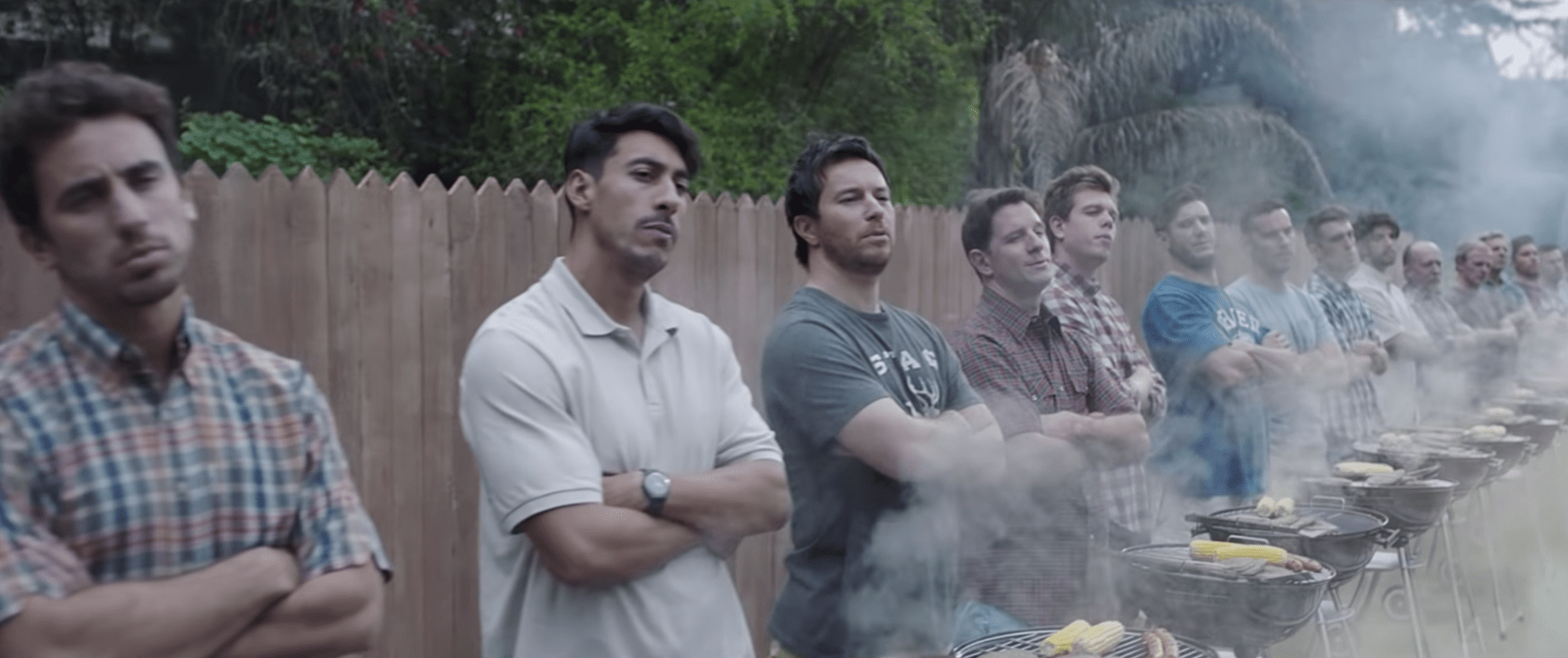Advertisement
Commentary
Gillette's Viral Ad Has A Fatal Flaw: It's Preachy Instead Of Persuasive

It is a beautiful ad — and, by at least one measure, a success. Everyone is talking about Gillette’s “The Best Men Can Be” video, from the vicious trolls on Twitter to the morning crew on a country-music radio station I scrolled through in the car the other morning.
But I was struck by something one of those deejays said, in the course of a friendly debate. Why couldn’t they just show the positive, he asked: examples of how men ought to act? Why did they have to focus on the negative, too, and paint all men as bad?
Intentionally or not, he hit on one of the weak spots of Gillette’s viral “we can do better” message, and one keys to our current political divide. Defensiveness, the defining political trait of President Donald Trump, is also a trait of the electorate. There are a lot of reasons why 2016 happened, but one of them — not a small one — is that people don’t like to be scolded.
Hillary Clinton’s leaked “deplorable” comment was only the most obvious example. Too much of the language used in public conversation, by well-meaning people with useful ideas, have the unfortunate effect of making people feel as if they’re being lectured to. Sometimes, it’s just a matter of choosing the wrong words, letting academic jargon creep into social media, where it makes a clanging sound. Tell someone struggling with money that she’s “privileged,” and her first instinct will not be to evaluate her life within the context of implicit bias and institutional racism. Her first instinct will be to tell you to go to hell.
Granted, it’s hard to have a political debate without saying “You’re wrong.” And there’s nothing wrong with calling out racism or sexism, or pointing out inequities. In righteous anger over Trump, the instinct is to moralize. But if you want to persuade, instead of just preach to the choir, you have to tailor your message to your audience. The mainstream media praised Clinton’s “Role Models” campaign ads, which hammered in Trump’s racist, sexist, offensive behavior. But did those ads sway anyone who wasn’t already appalled? Or did they have the opposite effect on Trump die-hards? One way to push back against the elites, after all, is to double down and dig in.
“Elite” is a mindset here, more than an objective fact. Trump is 10,000 times more privileged than most of the people who take umbrage at the term, or the people who use it earnestly. But with the power of plain-spoken crassness, he has managed to tap into a grievance that’s deeply felt. The world is changing, fast, and the sting is even worse when you’re reduced to cartoon evil -- or told you’re bad because you’re part of a group you didn’t choose to belong to. I’ll carve out an exception for the truly evil here. But most people are more complex.
The same goes for the debate over toxic masculinity. Yes, the culture needs to change. But change is possible, in part, because we have role models already. For all of the men who have misbehaved spectacularly, plenty have managed to pass through life without harassing or mistreating a soul. Presumably, most of them buy razors, too.
There are a lot of reasons why 2016 happened, but one of them -- not a small one -- is that people don’t like to be scolded.
Gillette’s one-minute-and-forty-eight-second-long ad briefly acknowledges that fact. After a scene where a row of men stand front of grills, robotically saying, “Boys will be boys,” the narrator notes that some men “already are” good examples. But it’s the men at the grills who are sparking the backlash. Maybe Gillette intended to preach to the choir; an ad like this doesn’t get made without copious market research. And there’s an argument, which some, like the Boston Globe's Christopher Muther, have made beautifully, that forcing viewers to watch uncomfortable examples is a useful kind of exorcism.
But let’s imagine Gillette actually wants to persuade, or stamp out harassment for good. And let’s imagine the video started, instead, about 49 seconds in, when the message pivots from self-flagellation to examples of good guys stepping up. Those close-up shots of boys would still bring tears to my eyes. The call to action would be the same. And a small subset of troglodytes would still be howling that kindness is somehow unmanly.
But maybe some other guys — the ones who are quietly thinking, “Not all men are bad,” or “Don’t stereotype me” or “I don’t need a lecture from Madison Avenue” — would instead be thinking, “Yes. That’s exactly who I want to be.”


